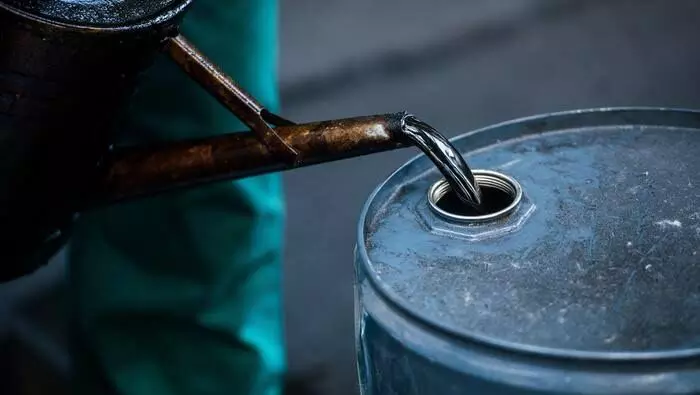
Japan to release excess oil reserves to shore up crude prices
text_fieldsFor the first time in its history, Japan has elected to release excess oil reserves from its stock in order to join other countries in preventing global prices of oil from rising up further said Japanese Prime Minister Fumio Kishida on Wednesday. The release will be controlled so as not to violate the oil stockpiling law which limits the release to purposes such as responding to disasters and overseas political turmoil.
"Japan has decided to act in tandem with the United States and sell a portion of the state-owned stockpiles in a manner that does not violate the oil stockpiling law," said Kishida as quoted by IANS. Government officials estimate that the amount of oil released from reserves will be equivalent to several days of consumption. Tokyo plans to release oil reserves that exceed its target of storage in value of 160 days of consumption.
As US President Joe Biden faced internal criticism for inflation and rising oil prices, the American administration has decided to release 50 million barrels of oil from its reserves to shore up global oil prices that have been rising sharply. Calls for the Organization of the Petroleum Exporting Countries and its allies (known as OPEC+) to produce more crude oil have gone unheeded according to reports.
Crude oil prices recently touched seven-year highs, and consumers are feeling the pain. Retail gasoline prices are up more than 60% in the last year, the fastest rate of increase since 2000, largely because people have returned to the roads as pandemic-induced restrictions have eased.
Under the plan, the United States will release 50 million barrels, the equivalent of about two and a half days of U.S. demand. India, meanwhile, said it would release 5 million barrels, while Britain said it would allow the voluntary release of 1.5 million barrels of oil from privately held reserves.
Prices of the Brent and U.S. West Texas Intermediate (WTI) crude benchmarks fell more than $1 in early trading, hitting their lowest levels since October 1. The losses were later recovered. Brent was up 83 cents, or 1%, at $79.70 a barrel while U.S. crude had gained 80 cents, or 1%, to $76.73.


















